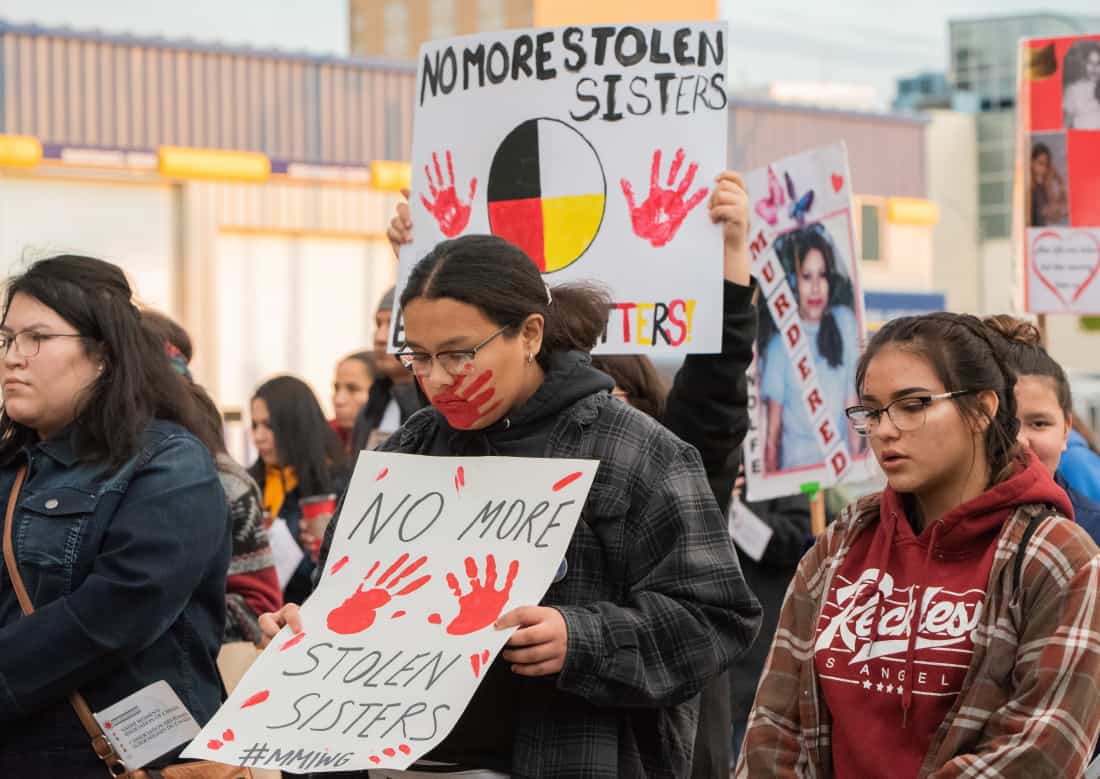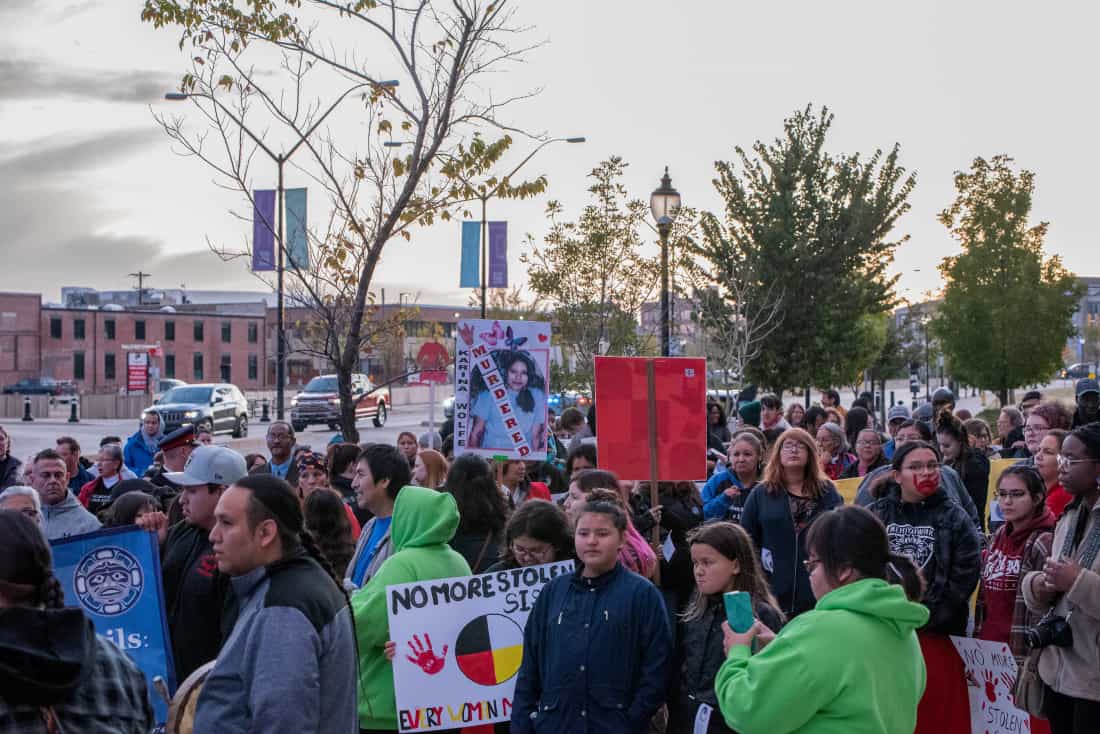
This article deals with topics that may negatively impact the reader due to its subject matter. For immediate emotional support, call 1-844-413-6649. This is a national, toll-free 24/7 crisis call line providing support for anyone who requires emotional assistance related to missing and murdered Indigenous women and girls.
On Oct. 4, Saskatoon held its annual Sisters in Spirit Vigil in remembrance of Indigenous women, girls and 2SLGBTQQIA+ people who have been murdered, gone missing or had their cases left cold in what is being called a Canadian genocide.
This vigil is one of many that took place all over Canada that same day. It was held at the Saskatoon Indian and Métis Friendship Centre. It began with a prayer and was followed by a walk that saw attendees, led by four singers and drummers, taking to the streets of downtown Saskatoon.
People of all ages were in attendance, some bearing banners and others holding signs dedicated to their relatives who were being commemorated. After the walk, the solemn gathering allowed time for multiple families to tell their stories and remember their loved ones.
Family and friends of Ashley Morin — who went missing on July 10, 2018 from North Battleford and still hasn’t been found — were in attendance. Morin’s family and friends have raised a $20,000 reward for any information that might lead to her discovery.
Shirley Wilson — whose 18-year-old daughter, Wannitta Wolfe, was shot to death in 1999 — was also present. She said that she “had someone asked [her] … ‘how do you cope with losing a loved one? How do you move forward from that?’ You don’t. You learn how to walk, I guess.”
“I know if the shoe was on the other foot, my daughter would be standing here and that voice of hers would be much stronger than mine. I do what I do for my daughter. I do what I do for all the other women that are out there,” Wilson said.

Wilson had testified at the National Inquiry into Missing and Murdered Indigenous Women in 2017 and continued to be vocal about systemic and disproportional violence towards Indigenous women and girls.
Myrna LaPlante, one of the hosts of the evening and co-chair of Iskwewuk E-Wichiwitochik, has also had a family member affected by this matter.
“I’ve been involved in a variety of activities pertaining to women’s issues, particularly violence against women and so on,” said LaPlante. “My first [experience] supporting and raising awareness was with the Pamela George case in Regina [in 1995] … and then my aunt went missing in 2007. I became really active in 2007.”
Her aunt, Emily Osmond, is still missing. She was 78 years old at the time of her disappearance.
The issue of missing and murdered Indigenous women, girls and gender diverse people is not new in Canada as it dates as far back as the 1960s. While only representing nine per cent of homicide victims in 1980, that number grew to 24 per cent by 2015, despite Indigenous women and girls constituting only four per cent of the population.
Indigenous women are also 12 times more likely to go missing or be murdered than any other demographic in Canada.
There is an ambiguity to just how many Indigenous women, girls and gender-diverse people have gone missing — especially in comparison to other demographics — because until 2010, there was no database for missing people in Canada.
Urged by activist groups, The Native Women’s Association of Canada and non-governmental organizations, The National Inquiry into Missing and Murdered Indigenous Women and Girls was established by Prime Minister Justin Trudeau in 2016.
The final report of this inquiry was published in June 2019 which revealed that “persistent and deliberate human and Indigenous rights violations and abuses are the root cause behind Canada’s staggering rates of violence against Indigenous women, girls and 2SLGBTQQIA people.”
This report also features 231 calls for justice, which state that “the steps to end and redress this genocide must be no less monumental than the combination of systems and actions that has worked to maintain colonial violence for generations.”
After the release of the report, Minister of Indigenous Services Seamus O’Regan said the government was “committed” to creating a national action plan based on the report.
Despite claims made by Crown-Indigenous Relations Minister Carolyn Bennett, no timeline for a plan of action has been released and very little has been done.
—
Tomilola Ojo/ Culture Editor
Photos: Victoria Becker/ Photo Editor
Leave a Reply